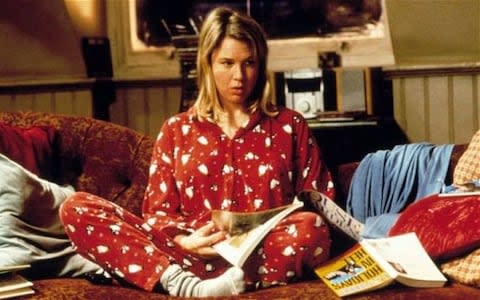What is China's Singles Day and how does it compare to Black Friday?

Online shoppers in China have shattered last year's record by making $30.8 billion in sales on the country's annual buying frenzy Sunday, as the tradition marked its 10th year.
The spending binge, which takes place on November 11 every year, has for years eclipsed Cyber Monday in the US for online purchases made on a single day.
This year's tally was 27 percent higher than a year ago. It breaks from gloomy forecasts about the world's second-largest economy, which is struggling with a tariff war with the U.S., a stock market slump and slowing overall growth.
What is Singles Day?
Singles Day started as an obscure "anti-Valentine's" celebration for single people in China back in the 1990s,

What does that have to do with single people?
Astute readers will have noticed that the November 11 is written 11.11, or one-one-one-one.
Known in China as "bare sticks holiday" because of how it looks numerically, Singles Day began as an anti-Valentine's Day in the 1990s when students at Nanjing University started celebrating their singledom.
It was then adopted by e-commerce giant Alibaba (China's Amazon equivalent) in 2009 and it has now become a day when everyone, regardless of their single status buys themselves gifts.
It's also known as Bachelors' Day because of China's gender imbalance. The country's one-child policy, which it brought to an end last year in favour of a two-child policy, along with the cultural and economic pressures for that child to be a son, has led to a male surplus.
In 2011, official Chinese data showed that there were 20m more men than women under the age of 30. By 2020, sociologists expect that discrepancy to have widened to 35m. By 2030, it is estimated that one-in-four Chinese men in their late 30s will never have married.

How did Singles Day become a shopping holiday?
Alibaba chiefs spotted the commercial opportunity in Singles Day back in 2009 and began launching “Double 11” deals just as online shopping was starting to explode. It was also seen as a chance to boost sales in the lull between China’s Golden Week national holiday in October and the Christmas season.
In that first year consumers spent 50m yuan (around £5m) and 27 merchants offered discounts. By 2011 – which was dubbed the Singles Day of the Century because it was 11.11.11 – more than £500m was spent across Alibaba's platform during the day.

When sales almost quadrupled the following year, Alibaba trademarked Singles Day. Some of the featured sales centre around singledom, such as boyfriend pillows and single travel tickets, but the day has now widened to an all-inclusive shopping holiday.
The Hangzhou-based firm, founded by eccentric businessman and China's second richest man Jack Ma, now refers to Singles Day as the 11.11 Global Shopping Festival.
So is Singles Day is bigger than Black Friday?
Singles Day laughs in the face of Black Friday. In 2015, Chinese consumers treated themselves to almost £11.4bn worth of goods from Alibaba in just 24 hours. This year, Alibaba surpassed that total within 15 hours.
This resulted in 467 million parcels being delivered after 710 million payments were made, according to Chinese news agency Xinhua. That was an increase of 60 per cent on 2014, and more than double the total online sales from Thanksgiving, Black Friday and Cyber Monday combined in the US in 2015, according to a report by Fortune.
It's not just about Alibaba though. Rival Chinese firm JD.com also gets in on the act, and American and European brands like Zara and Macy's offer discounts.
How much does each person spend?
Growth of the world's second-largest economy has slowed markedly over the past few years and in 2015, China devalued its currency for the first time in two decades which saw billions wiped off its stock market.
Despite that, a 2015 survey of 1,000 Chinese internet users, conducted by Nielsen, found that the average consumer planned to spend 1,761 yuan (£181) during Singles Day - or 22 per cent more than 2014.
Mobile shopping is big business in China. Around 37pc of Chinese shoppers buy products using their phones, compared to the global average of 13pc.
Will Singles Day be coming to the UK?
The potential to take part in the multibillion shopping event has encouraged some British retailers to take part. In 2015, Topshop sales surged by 900pc and is seen as a way for the fashion retailer to grow awareness in China.
Likewise, a number of British brands, including Whittard of Chelsea, Marks & Spencer, Asos and Waitrose, have marketplaces on Alibaba's Tmall site.
Sainsbury's has used a virtual reality promotion tool on Tmall before which allows shoppers to see a 360 degree live broadcast of a London supermarket as they shopped. The event was the second most popular promotion since Sainsbury's live broadcasted an afternoon tea party on the Queen's birthday.

The Hut Group, which owns beauty sites and Protein World, said last year it expected sales to double compared to 2016 with brands offering 40pc off haircare products. Meanwhile, vitamin retailer Holland & Barrett is hoping to make £1m from the event alone this year, double its takings last year after trading on Tmall just a few months before Singles Day.
British luxury brand Burberry also has a Tmall store and in 2016 drove demand with personalised cashmere scarves during the shopping event, but didn't discount its products.
However, the event is unlikely to take hold in the UK as it falls on Armistice Day. "It would be incredibly distasteful to run a shopping event in Britain during Remembrance services", one retailer said.
